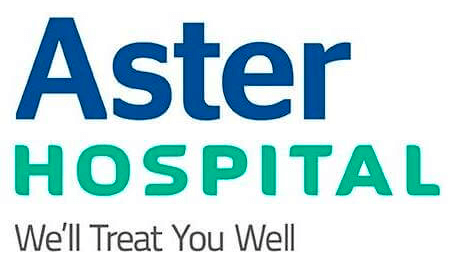United Arab Emirates


Environment
Industry
& Services
About
United Arab Emirates
1. Overview
Brief Introduction to the Country and Its Reputation in Medical Tourism
The United Arab Emirates (UAE), a federation of seven emirates including Abu Dhabi and Dubai, has emerged as a global hotspot for medical tourism. With state-of-the-art healthcare facilities, cutting-edge medical technology, and a commitment to excellence, the UAE has captured the attention of medical tourists from around the world. The government has heavily invested in healthcare infrastructure, making it a priority sector. Its strategic location as a global crossroads also adds to its appeal for medical tourists. The robust aviation network and visa-friendly policies make it convenient for patients to travel for medical procedures.
Historical and Cultural Significance in Medicine
While the UAE's modern medical facilities are a relatively recent development, the region has a rich history in traditional medicine. Traditional Arabic medicine was once practiced widely and it shares some elements with Ayurvedic and Chinese medicine. This cultural acceptance of various forms of medical treatment translates into a more comprehensive, integrated approach to healthcare today. Although the focus has shifted to advanced medical technologies and Western practices, the respect for different forms of medicine often makes for a more holistic healthcare experience.
Reputation in the Global Medical Landscape
Internationally, the UAE is often viewed as a luxurious medical tourism destination. It competes with other high-end medical tourism countries like Switzerland and Singapore, but often at a more competitive price. The standard of healthcare services has consistently been compared to leading Western countries. With more medical institutions gaining international accreditation, the UAE is progressively solidifying its reputation as a reliable destination for medical tourism.
Regional Significance
Within the Middle East and North Africa (MENA) region, the UAE stands out for its exceptional healthcare offerings. It has become the go-to destination for patients in surrounding countries who seek high-quality medical services but wish to stay relatively close to home. As healthcare systems in neighboring countries face challenges, the UAE serves as a regional hub for specialized treatments and procedures.
2. Popular Medical Procedures
List and Brief Descriptions of Procedures
The UAE is well-known for a range of medical procedures. Some of the most sought-after include:
- Cosmetic Surgery: From facelifts to rhinoplasty and liposuction, the UAE offers an array of cosmetic procedures.
- Orthopedic Surgery: Knee and hip replacements are frequently performed with a high success rate.
- Cardiovascular Treatments: Including bypass surgery, valve replacements, and angioplasty.
- Dental Treatments: High-quality dental care including implants, veneers, and teeth whitening.
Specializations and Pioneering Treatments
Several hospitals in the UAE specialize in robotic surgeries, cancer treatments, and fertility treatments. With constant research and development, some facilities offer pioneering treatments not easily accessible elsewhere, such as 3D-printed joints for orthopedic surgeries.
3. Top Hospitals & Clinics
List of Renowned Hospitals
Some top-rated hospitals in the UAE include:
- Cleveland Clinic, Abu Dhabi: Renowned for cardiovascular and digestive diseases.
- Al Zahra Hospital, Dubai: Comprehensive cancer center and cosmetic treatments.
- Mediclinic, Dubai: Offers a variety of specialties and is highly regarded.
Accreditation and Affiliations
Most leading hospitals are internationally accredited by the Joint Commission International (JCI), a globally recognized healthcare standard.
Special Features, Awards, or Recognitions
Many hospitals have won awards for patient care, innovation, and medical technology. Additionally, VIP suites and concierge services are often available for international patients.
4. Cost Comparison
Comparative Data
Generally, medical procedures in the UAE can be 30-50% cheaper than in Western countries. However, compared to countries like India or Thailand, the UAE might be more expensive.
Price Ranges
Orthopedic surgeries can range from $10,000 to $20,000, whereas cosmetic procedures can start from $4,000.
5. Quality & Safety
Medical Standards and Practices
The United Arab Emirates adheres to high medical standards comparable to Western countries. With a focus on technological advancements, research, and qualified professionals, the UAE has been able to maintain quality healthcare across its institutions.
Accreditation Systems
Most healthcare providers are internationally accredited, particularly by the Joint Commission International (JCI), which ensures that they meet global standards for healthcare quality and patient safety.
Regulatory Bodies and Quality Checks
Healthcare institutions in the UAE are closely regulated by the Ministry of Health and Prevention (MoHAP) and other local health authorities. These agencies conduct regular inspections and audits to ensure compliance with national and international standards.
Patient Safety Protocols and Rights
Patient safety is a high priority, and hospitals typically have robust systems for ensuring confidentiality, informed consent, and patient rights. Many hospitals also have patient liaisons to assist international patients through their medical journey.
6. Medical Visa Information
Guidelines and Requirements
Most visitors from foreign countries will require a visa for medical treatment. The UAE offers a special medical treatment visa, usually valid for 90 days and extendable up to a year depending on the treatment.
Duration, Documentation, and Process
The application process for a medical visa typically requires documentation of the medical condition and the need for treatment in the UAE, along with all standard travel documents. The duration of the visa generally depends on the type of medical procedure and expected recovery time.
Travel-Related Advisories or Restrictions
It's essential to check for any travel advisories or vaccine requirements before planning your trip. While the UAE is generally a safe country, each emirate may have its own set of travel guidelines.
7. Cultural Considerations
Local Customs and Etiquette
The UAE is a Muslim-majority country, so understanding and respecting local customs and religious practices is essential. Dressing modestly and refraining from public displays of affection are advised.
Language and Communication
While Arabic is the official language, English is widely spoken in healthcare institutions, making communication easier for international patients.
Dietary Considerations
Halal food is the norm in the UAE, but most major hospitals offer a variety of meal options to cater to international dietary needs.
8. Travel & Accommodation
Popular Areas to Stay
Both Abu Dhabi and Dubai offer a range of accommodation options, from luxury hotels to more budget-friendly choices. Many are located within a short distance of top medical facilities.
Proximity to Medical Facilities
Hotels often partner with hospitals to offer special rates for medical tourists. Many hospitals also provide shuttle services to and from the hotel.
Transportation and Infrastructure
The UAE has a well-developed infrastructure, featuring modern airports and an efficient public transportation system. This makes travel between hotels, hospitals, and tourist spots convenient.
Post-Procedure Relaxation Spots
For post-procedure relaxation, consider the serene beaches of Dubai or the cultural attractions of Abu Dhabi.
9. Legal & Ethical Considerations
Legal Rights of Patients
Patients have the right to informed consent, confidentiality, and to seek a second opinion. Laws protect these rights rigorously.
Medical Malpractice and Patient Recourse
In the event of medical malpractice, patients have the option to file complaints with the regulatory bodies. Legal avenues are also available for dispute resolution.
Ethical Considerations
All medical procedures are conducted following strict ethical guidelines. It is advisable to be fully aware of all implications before opting for procedures like elective surgeries or experimental treatments.
10. Benefits & Risks
Advantages
The UAE offers world-class medical care, often at a lower cost than Western countries. The country is also seen as a luxurious destination, allowing for a comfortable recovery.
Risks
Potential risks could include complications arising from surgery or treatment, as with any medical procedure. Always ensure you understand the risks associated with your specific treatment.
11. Post-Procedure Care
Post-Operative Care
Hospitals in the UAE often offer holistic post-operative care, including follow-up appointments, rehabilitation services, and counseling.
Rehabilitation Centers
High-quality rehabilitation centers are available for procedures requiring prolonged recovery. These centers often feature state-of-the-art facilities and expert care teams.
12. Frequently Asked Questions (FAQs)
Is English widely spoken in UAE hospitals?
Yes, English is commonly spoken in healthcare settings.
What currency is accepted?
The UAE Dirham is the accepted currency, but most major hospitals will accept international credit cards.
Is the UAE safe for medical tourism?
The UAE is generally considered a safe destination, with low crime rates and stringent healthcare regulations.
What is the quality of post-procedure care?
Post-procedure care is generally excellent, with personalized treatment plans and follow-up care as standard practice.
Global Provider Members

Language
Arabic
Capital
Abu Dhabi
Time Zone
GMT+4
Currency
Dirham
Population
9,810,027
The climate in Dubai is subtropical with clear skies and ample amounts of sunshine. The hottest months are June to September where temperatures can reach as high as 113oF (45oC). The coldest months are December to March where temperatures are generally in the 70’soF (21oC-26oC).














